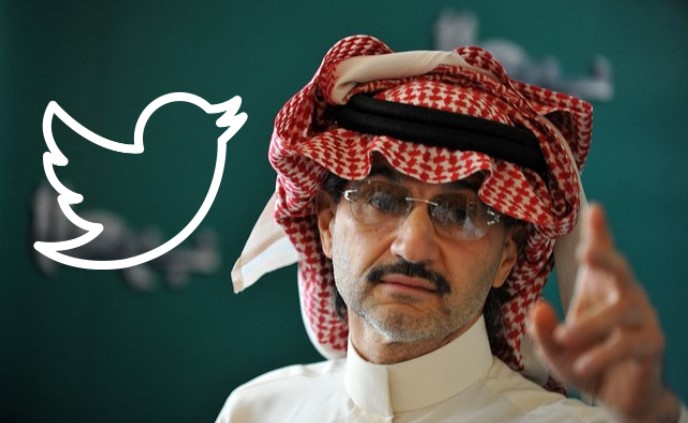“Great to connect with you my `new’ friend @elonmusk,” Alwaleed tweeted Thursday, shortly after a Securities and Exchange Commission filing showed he agreed to roll his entire $1.9 billion stake into a privatized Twitter.
Alwaleed, a critic earlier, used the social-media platform to reject the offer, saying it didn’t “come close” to the company’s intrinsic value, when Musk announced his $54.20-per-share offer in April.
Alwaleed is the richest individual in Saudi Arabia, with $16.5 billion fortune, according to Bloomberg Billionaires Index. Most of his wealth is derived from his 95 percent ownership of Kingdom Holding Company. Alwaleed along with his Kingdom Holding company owned 5.2 percent stake in Twitter, as per reports.
One of the key Twitter investors Saudi prince Alwaleed bin Talal rejecting world’s richest man Elon Musk’s offer to acquire in cash the social media platform did not go well with the latter and resulted in the Tesla chief seeking exposition of the Kingdom on “freedom of speech” for journalists.
Twitter gained traction early on with Prince Alwaleed Saudi Arabia’s youthful population
Alwaleed became involved in Twitter in 2011, two years before the company’s IPO, with a $300 million investment. Typical of his deals, Alwaleed invested both in his own name and through Kingdom Holding. He doesn’t sit on the board and has primarily been a passive investor.
Twitter gained traction early on with Saudi Arabia’s youthful population, who embraced the medium as a welcome tool in a country where traditional media is controlled by the government. De facto ruler Prince Mohammed has reportedly used the service to spy on critics of the regime.
How Musk swayed the Saudi billionaire – initially the Tesla co-founder mocked the Saudi royal – but sticking with the company is in keeping with Alwaleed’s tendency to hold tight on high-profile bets through ups and downs.
The strategy has yielded mixed results. Alwaleed, 67, rose to prominence in Wall Street circles in the early 1990s when he emerged as a savior of Citicorp, a predecessor of Citigroup Inc., which was struggling after a spate of bad loans. His stake soared more than 190% over the following decade. When the financial crisis hit in 2008, Alwaleed boosted his holding as the share price plunged. Citigroup’s stock now trades at less than a tenth of its pre-crisis heights.
Alwaleed stuck with a $345 million bet on Euro Disney despite years of cash-flow struggles and image problems, helping to recapitalize the floundering Paris theme park in 2014. And in an acid test of his faith in management, Alwaleed stood by the Murdoch family during the 2012 phone-hacking scandal at News Corp., where he was among the biggest shareholders. The prince only sold his stakes in News Corp and its spinoff, 21st Century Fox, several years later.
Alwaleed styled his investment approach after Warren Buffett, once calling himself the Oracle of Omaha’s Arabian equivalent. His version of Berkshire Hathaway Inc. is Kingdom Holding Co., a Saudi-listed conglomerate that owns stakes in closely held and public equities all over the world. His portfolio includes interests in Saudi entertainment company Rotana, Snapchat Inc. and Lyft Inc. Alwaleed’s 95% stake in Kingdom comprises a little more than half of his $16.4 billion fortune, according to the Bloomberg Billionaires Index. He hasn’t sold any shares since the company’s 2007 initial public offering.
After Alwaleed’s initial snub of the offer, Musk asked — on Twitter, of course — about Saudi Arabia’s stance on journalistic freedom of speech. The country ranks 166th out of 180 on this year’s Press Freedom Index, one rung below Honduras. The number of imprisoned journalists and bloggers has tripled since 2017, the year Mohammed bin Salman was appointed crown prince. Alwaleed didn’t Tweet a response.






